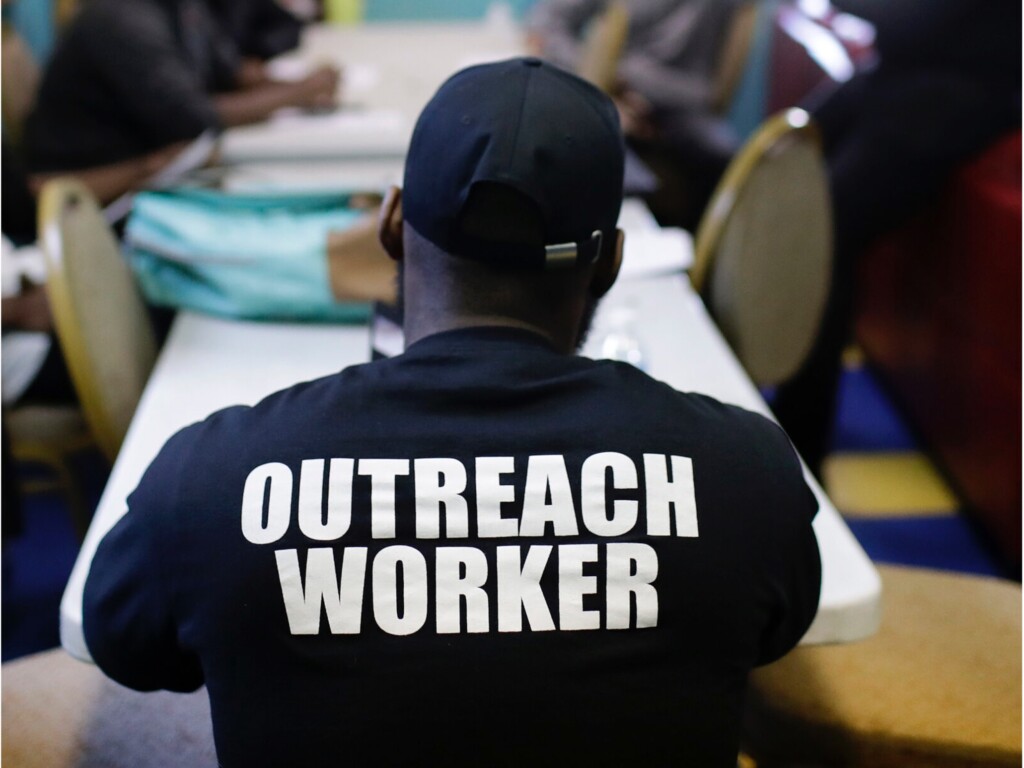Over the past few years, American cities have experienced an alarming increase in murders, reaching levels unseen in the past five decades. This rise in gun violence has disproportionately affected communities of color, exacerbating existing public safety disparities. In some neighborhoods, the progress made in reducing gun violence since the 1990s has been completely erased. While gun violence is a significant issue across America, it affects different communities unequally, and this safety gap appears to be widening.
The current debate on improving overall public safety and closing the safety gaps has largely focused on familiar topics such as gun control, increasing or decreasing police funding and addressing the “root causes” of violence, such as improving education and reducing poverty. However, progress in these areas has been slow and limited due to the need for sustained long-term investments.
In the short term, the responsibility of saving lives falls primarily on two frontline sectors: the police and community violence intervention (CVI) organizations. Unfortunately, neither sector has been able to fully capitalize on advances in data-driven management practices, which have revolutionized many other sectors like medicine. Consequently, both sectors have struggled to deliver the maximum social impact per dollar spent, which is crucial for our cities.

What if we could enhance the effectiveness of these frontline institutions combating gun violence by implementing data-driven management practices? By adopting such practices, we could significantly increase the output and quality of the services provided by the police and CVI organizations. Several pieces of evidence support this notion:
- Research from the University of Chicago Crime Lab indicates that improved leadership within a police department or district is associated with a 20-35% reduction in violent crimes and police use of force.
- In the past three decades, both Los Angeles and New York City experienced a remarkable decline in murder rates, with reductions of 80% and 90% respectively. These cities achieved this success through the early adoption of data-driven management, accompanied by increased community support for the police and a decline in incarceration rates.
Regrettably, most police departments invest insufficiently in developing future managers and leaders, missing out on significant potential improvements. Similarly, the CVI field, which holds immense promise, suffers from inadequate funding, and lacks formal leadership training and capacity support.
To address these challenges and needs, the University of Chicago Crime Lab is launching the Community Safety Leadership Academies (CSLA) this summer. These academies consist of the Policing Leadership Academy (PLA) and the CVI Leadership Academy (CVILA).

These academies offer first-of-their-kind programs to train the next generation of policing and CVI leaders from across America — to have a national impact — and will be rigorously evaluated. This effort combines data and behavioral science insights of top academics at a world-class university along with our nation’s leading safety practitioners who have a demonstrated track record of real-world success. The academies have complementary curricula, focusing on the transformational impact leadership and management can have, to be the most impactful public safety training ever offered in the United States.
The Policing Leadership Academy (PLA):
The PLA is the country’s only police education program specifically designed to scale data-driven management, following the successful models in Los Angeles and New York. Through a rigorous six-month curriculum, emerging leaders will gain the necessary tools to effectively manage high-violence police districts across America. By applying knowledge from behavioral, organizational and sociological sciences, these leaders will become stronger and advance evidence-based practices within their organizations. The inaugural cohort will include captain- and commander-level leaders from mid-size to large cities nationwide.
The CVI Leadership Academy (CVILA)
The CVILA aims to develop the leadership capacity of CVI professionals, strengthen their leadership and management skills, expand their networks and improve their use of data. Through an intensive six-month curriculum, the CVILA combines academic instruction with peer learning and field training to enhance the leadership and management practices of CVI leaders. This will enable them to effectively coordinate and implement CVI strategies, driving progress in the field. Most participants will hold senior or executive-level leadership positions within community-based organizations with demonstrated experience implementing CVI strategies.

It is critical that the policing and CVI sectors — out on the front lines of American cities each day — be seen as the complementary efforts they truly are. By investing in the development of these leaders and focusing on leadership and management, we can build stronger, more resilient communities and make significant progress in closing the safety gap.
To learn more about the CSLA and watch the launch event, visit the UChicago Crime Lab website. This ambitious initiative is currently seeking additional support to sustain these pioneering academies.
More from Better:
- National Fentanyl Awareness Day: Stories and Advice from Parents and Experts Who Have Faced the Terrifying Reality of America’s Fentanyl Crisis
- 2023 Philanthropy Award Winners: 3 Organizations Making the Greatest Impact in Violence Interruption and Prevention in Chicago
- 10 Top Eco-Warriors Fighting Climate Change and Promoting Sustainability – 2023

Roseanna Ander is the Founding Executive Director and Kim Smith is the Director of Programs at the University of Chicago Crime Lab, an independent research organization that designs, tests and scales data-driven innovations to improve the public sector’s response to the dual challenges of America’s gun violence crisis and making our criminal justice system truly just.

